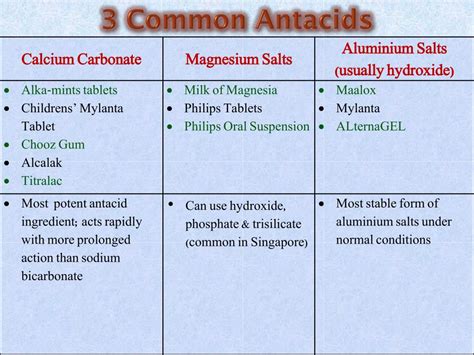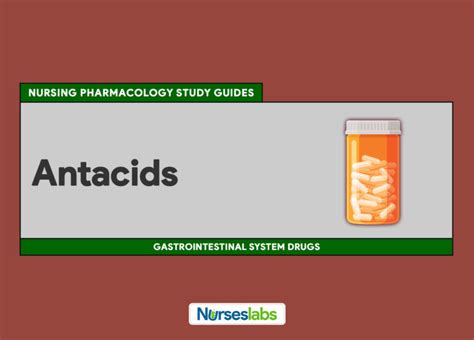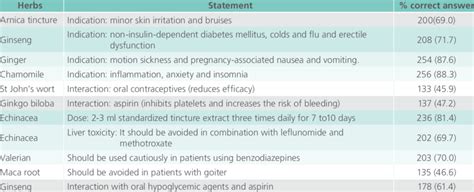Intro
Discover the best antacid drugs over counter for heartburn relief, including acid reducers and histamine-2 blockers, to soothe stomach acid and alleviate symptoms of acid reflux and indigestion.
The world of antacid drugs can be overwhelming, especially with the numerous over-the-counter (OTC) options available. For individuals suffering from heartburn, acid reflux, or indigestion, it's essential to understand the different types of antacids, their mechanisms of action, and how to choose the most suitable one. In this article, we'll delve into the realm of OTC antacid drugs, exploring their benefits, working mechanisms, and key information to help you make informed decisions.
Heartburn and acid reflux are common ailments that affect millions of people worldwide. These conditions occur when stomach acid flows back up into the esophagus, causing discomfort, pain, and irritation. Antacids are a popular solution for alleviating these symptoms, and with so many OTC options available, it's crucial to understand how they work and what sets them apart. Whether you're a occasional sufferer or a frequent victim of heartburn, this article will provide you with the knowledge to navigate the world of antacid drugs and find the best solution for your needs.
The importance of understanding antacid drugs cannot be overstated. With the rise of self-medication and the ease of accessing OTC medications, it's essential to be aware of the potential benefits and risks associated with these drugs. By grasping the fundamentals of antacid mechanisms, ingredients, and interactions, you'll be better equipped to manage your symptoms effectively and make informed decisions about your health. So, let's dive into the world of antacid drugs and explore the various aspects of these medications.
Introduction to Antacid Drugs

Antacid drugs are medications designed to neutralize stomach acid and provide relief from heartburn, acid reflux, and indigestion. These medications work by increasing the pH level of the stomach, reducing the acidity and alleviating the discomfort associated with these conditions. Antacids can be broadly classified into several categories, including magnesium-based, calcium-based, aluminum-based, and combination products. Each type of antacid has its unique characteristics, benefits, and potential side effects, which we'll explore in more detail later.
Types of Antacid Drugs

There are several types of antacid drugs available OTC, each with its own mechanism of action and ingredients. Some of the most common types include:
- Magnesium-based antacids: These antacids contain magnesium hydroxide or magnesium carbonate, which help neutralize stomach acid and provide quick relief from heartburn and indigestion.
- Calcium-based antacids: These antacids contain calcium carbonate, which helps neutralize stomach acid and provide relief from heartburn and acid reflux.
- Aluminum-based antacids: These antacids contain aluminum hydroxide, which helps neutralize stomach acid and provide relief from heartburn and indigestion.
- Combination products: These antacids combine different ingredients, such as magnesium and aluminum, to provide a more comprehensive approach to managing heartburn and acid reflux.
How Antacid Drugs Work

Antacid drugs work by increasing the pH level of the stomach, reducing the acidity and alleviating the discomfort associated with heartburn, acid reflux, and indigestion. When an antacid is ingested, it dissolves in the stomach and releases its active ingredients, which then neutralize the stomach acid. This process helps to:
- Reduce the acidity of the stomach
- Provide relief from heartburn and acid reflux
- Soothe the esophagus and reduce inflammation
- Prevent future episodes of heartburn and acid reflux
Benefits of Antacid Drugs

The benefits of antacid drugs are numerous, making them a popular solution for managing heartburn, acid reflux, and indigestion. Some of the key benefits include:
- Quick relief from heartburn and acid reflux
- Effective in reducing stomach acid and alleviating discomfort
- Available OTC, making them easily accessible
- Can be used as needed or as part of a preventative regimen
- Often combined with other ingredients to provide a more comprehensive approach to managing heartburn and acid reflux
Choosing the Right Antacid Drug

With so many OTC antacid drugs available, choosing the right one can be overwhelming. When selecting an antacid, consider the following factors:
- Type of antacid: Magnesium-based, calcium-based, aluminum-based, or combination products
- Active ingredients: Look for ingredients that are known to be effective in neutralizing stomach acid
- Dosage: Follow the recommended dosage instructions to ensure safe and effective use
- Potential side effects: Be aware of potential side effects, such as constipation, diarrhea, or interactions with other medications
- Interactions with other medications: Consult with your healthcare provider before taking an antacid, especially if you're taking other medications
Precautions and Interactions

When taking antacid drugs, it's essential to be aware of potential precautions and interactions. Some key considerations include:
- Interactions with other medications: Antacids can interact with other medications, such as blood thinners, and reduce their effectiveness
- Potential side effects: Antacids can cause side effects, such as constipation, diarrhea, or stomach cramps
- Allergic reactions: Some individuals may be allergic to certain ingredients in antacids, such as magnesium or aluminum
- Pregnancy and breastfeeding: Consult with your healthcare provider before taking an antacid, especially if you're pregnant or breastfeeding
Conclusion and Next Steps

In conclusion, antacid drugs are a popular solution for managing heartburn, acid reflux, and indigestion. By understanding the different types of antacids, their mechanisms of action, and potential precautions and interactions, you can make informed decisions about your health. Remember to always follow the recommended dosage instructions, consult with your healthcare provider if you have any concerns, and be aware of potential side effects.
We invite you to share your experiences with antacid drugs, ask questions, or provide feedback in the comments section below. Your input will help us create a more comprehensive and informative resource for individuals suffering from heartburn, acid reflux, and indigestion.
What is the most effective type of antacid drug?
+The most effective type of antacid drug depends on individual needs and preferences. Magnesium-based antacids are often considered effective for quick relief, while combination products may provide a more comprehensive approach to managing heartburn and acid reflux.
Can I take antacid drugs with other medications?
+It's essential to consult with your healthcare provider before taking antacid drugs with other medications. Antacids can interact with certain medications, such as blood thinners, and reduce their effectiveness.
Are antacid drugs safe for pregnant or breastfeeding women?
+It's crucial to consult with your healthcare provider before taking antacid drugs, especially if you're pregnant or breastfeeding. Some antacids may be safe, while others may pose risks to the fetus or baby.
